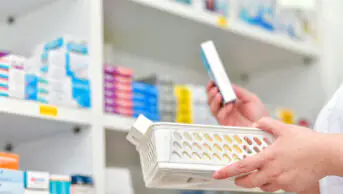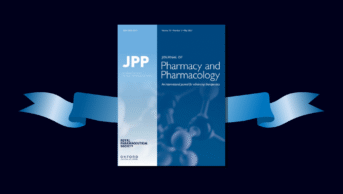
Shutterstock.com
NHS England has announced an additional £112m investment to roll out a pilot scheme embedding clinical pharmacists in GP surgeries.
The next round of applications, set to open in January 2017, will see a further 1,500 pharmacists working in general practice by 2020–2021, a commitment set out in the ‘General practice forward view’, which was published in April 2016.
The expansion, says NHS England, follows a “successful” pilot that involved 490 clinical pharmacists working in approximately 650 general practices across 90 sites. The pilot was launched in July 2015 with an initial £15m, doubling in size in November 2015, when the funding was increased by a further £16m.
The goal of the scheme is to ease pressure on the NHS by increasing capacity in general practice, which will free up GP time as well as ensure safer prescribing by offering specialist advice and support for patients with chronic diseases.
Providers taking part in the scheme will get funding to recruit and establish clinical pharmacists in their practices for three years. The scheme is supported by the Royal College of GPs (RCGP), Health Education England, a public body that works to support the health workforce, and the British Medical Association, doctors’ professional body and trade union. Guidance for those wishing to sign up to the scheme is now available and the first set of successful applicants will be announced in 2017.
Keith Ridge, chief pharmaceutical officer for England, says: “The success of the initial pilots has shown the benefits of having more clinical pharmacists in general practice, reducing GP workload and helping ensure patients are seen by the right professional in a more convenient and timely way.”
The expansion of the scheme was welcomed by the Royal Pharmaceutical Society (RPS), which says it is a “significant step” towards its shared vision with the RCGP that every GP practice should have access to the expertise of a pharmacist.
Sandra Gidley, chair of the RPS English Pharmacy Board, says: “We are delighted that GP-based pharmacists will be focused on joining up care across traditional boundaries between community pharmacy, hospital and other care settings.
“The NHS England-backed pilot means there will be at least 2,000 positions for pharmacists in GP surgeries, with take up of this new role by GP practices gathering pace.”
However, she adds that the RPS wants to see more resources and development of community pharmacy as well as general practice, “making sure the whole of primary care is able to meet the demands of patient care now and in future”.
“I would urge community and hospital pharmacists to embrace the opportunity of closer working with GP pharmacists to ensure more joined up patient care,” Gidley adds.
Helen Stokes-Lampard, chair of the RCGP, says practice-based pharmacists are playing an increasingly vital role in GP teams, carrying out medication reviews and managing repeat prescriptions.
“This helps cut waiting times for patients by freeing up GPs’ time for patients who really need our clinical expertise.”


